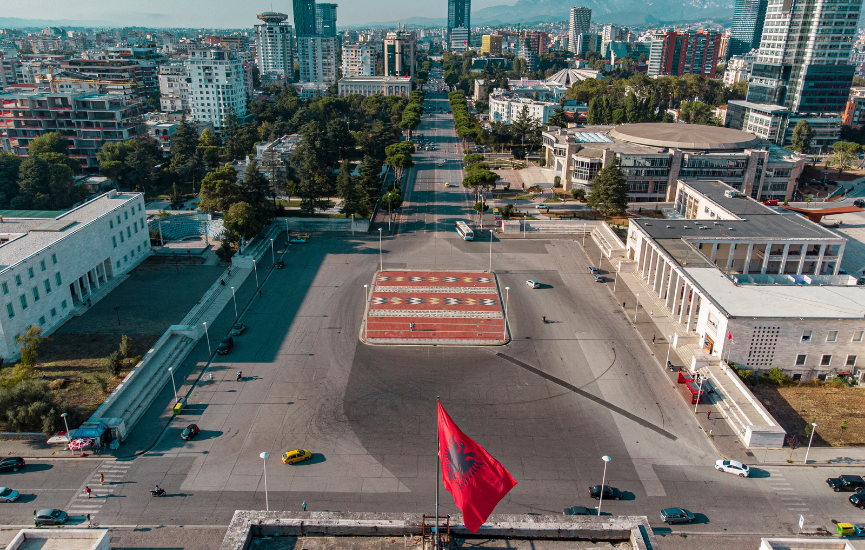Policy Brief: The lessons of the justice reform in Albania can be applied to other WB countries, by European Western Balkans (EWB), 28 December 2021
VIENNA – Judicial reform in Albania represents a case study to understand EU membership-driven reform processes in the Western Balkans. The experience of the justice sector reform in Albania and the lessons learned can be applied in other sectors as well as in the other Balkan countries, stresses the newest Policy Brief “Lessons learned from the justice reform in Albania“, published within the “WB2EU” network.
The document reminds that the judicial reform in Albania included, among others, setting up a fully-fledged system of vetting judges and prosecutors, establishing new institutions governing the judiciary, creating a special prosecution and courts for the fight against corruption and organised crime, and substantially reforming existing institutions, including the Supreme Court, Constitutional Court and General Prosecutor’s Office.
“Compared with the Western Balkan enlargement front-runners, in Albania the constitutional process of reorganising the judiciary was completed before the start of the EU accession negotiation process. The focus now has shifted towards the proper functioning and efficiency of the newly established structures and institutions. Frontloading conditionality has allowed Albania to mark a significant progress in many areas covered by Chapter 23, even if the accession negotiations with the EU have not been officially opened yet”, Policy Brief notes.
However, there were multiple setbacks of the reform implementation. These included the short time allocated to complete deep changes, the oversized role of current political elites in the design and implementation, insufficient involvement of the citizens and an overestimation of the country’s abilities to produce new qualified members of the judiciary willing to become part of the new institutions.
“Weak administrative capacity, missing or incomplete rules of procedure, ad-hoc solutions and by-passing of institutional procedures, low transparency, weak fight against corruption, etc. happen because political leaders don’t want strong institutions that can question or curtail their will. In the case of Albania, this was reflected also in the confrontations between the government, the parliament and the president for the appointment of the Constitutional Court judges, – which was a clear lack of critical mass of political will in favour ofthe institutional changes”, Policy Brief reads.
Hence, the role and impact of the political will and of good governance in the progress of the countries towards EU membership remains crucial. The political will of the domestic political elites – or the lack of it – should be considered when initiating such deep reforms. A clear political will is necessary to conduct the required changes and produce the desired results in an effective way.
Policy Brief stressed that inducing and implementing systemic changes when corrupt elites are still in charge requires a broad basis of participation to succeed.
“The process of reform monitoring and reporting should be more inclusive and extend also to those actors (i.e. Civil Society Organisations) outside from the captured institutions. The institutional reform programmes should be designed taking into account this political approach”, the Brief recommended.
It also recommended that the good governance features should apply to the newly established judicial institutions and structures, which is crucial in determining the outputs and the long- term impact of the reform.
Finally, the citizens who are the main beneficiaries of the reform should be involved throughout the whole process from the design of the reform to its implementation and operation.
“Thus, there is a need to prepare information in a way that makes it easier for citizens to understand and create external mechanisms involving representatives such as the civil society, academia or bar associations tomonitor the strategic action plans of the new justice institutions”, Policy Brief concluded.
The policy brief is published in the framework of the WB2EU Project, which aims at the establishment of a network of renowned think-thanks, universities, higher education institutes, and policy centers in the Western Balkans, neighboring countries, and EU member states that will be most decisive for the enlargement process and Europeanisation of the region in the upcoming years. The WB2EU project is co-funded by the European Commission under its Erasmus+ Jean Monnet programme.
Photo: Tirana by Marsel Dajçi von Pexels


